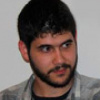About
In the context of higher education, academic work plays a fundamental role in students' education, allowing them to develop research skills, critical thinking, and knowledge production. However, writing these assignments can be a complex and challenging task, especially for students who are just entering academia or those with no previous experience producing academic content.
In this sense, guidance plays an essential role, providing support and direction to students while writing academic papers. However, for this guidance to be effective, it is essential to consider different theoretical and methodological approaches that can contribute to properly developing the guidance process.
The guidance of academic work or work to obtain a qualification in training contexts is inseparable from a set of reflections and choices regarding its concept and nature, its processes and purposes. As a critically orientated process, it requires a reflective attitude on the part of the supervisor towards their educational guidance practices, framing the relationship with the student, which necessarily varies according to the stage of the work, the profile of the student and the type of work to be developed (project, report, dissertation, thesis, etc.). In turn, the student is faced with the challenge of adapting to and managing the working relationship with the supervisor, responding positively to the demands inherent in the development of the work, overcoming obstacles, and developing the learning and skills that will enable them to succeed in different dimensions (personal, academic, professional, etc.).
It is understood that the productivist ideology resulting from capitalist transformations that have resulted in the commercialization of educational institutions, altering the work of teachers who are increasingly required to publish to compete, directly changes relations with postgraduate students and can cause work-related suffering, not only for students but also for teachers.
The Psychodynamics of Work approach, whose main exponent is the French occupational physician, psychiatrist, and psychoanalyst Christophe Dejours, encompasses research that ranges from suffering to pleasure at work (DEJOURS, 2013). Work Psychodynamics studies the dynamic relationships developed between the organization of work and the subjectivization processes of workers, this subjectivization being manifested by experiences of pleasure and/or suffering, as well as the action strategies adopted by workers to mediate the contradictions of the organization of work (EBERLE; BRUNING, 2013).
This study will also focus on the issues that academic work guidance poses to educational administration, requiring policies, programs, and actions that regulate educational guidance in institutions, providing human and material resources, credit hours, and assessment and recognition processes that ensure and validate educational and training processes.





